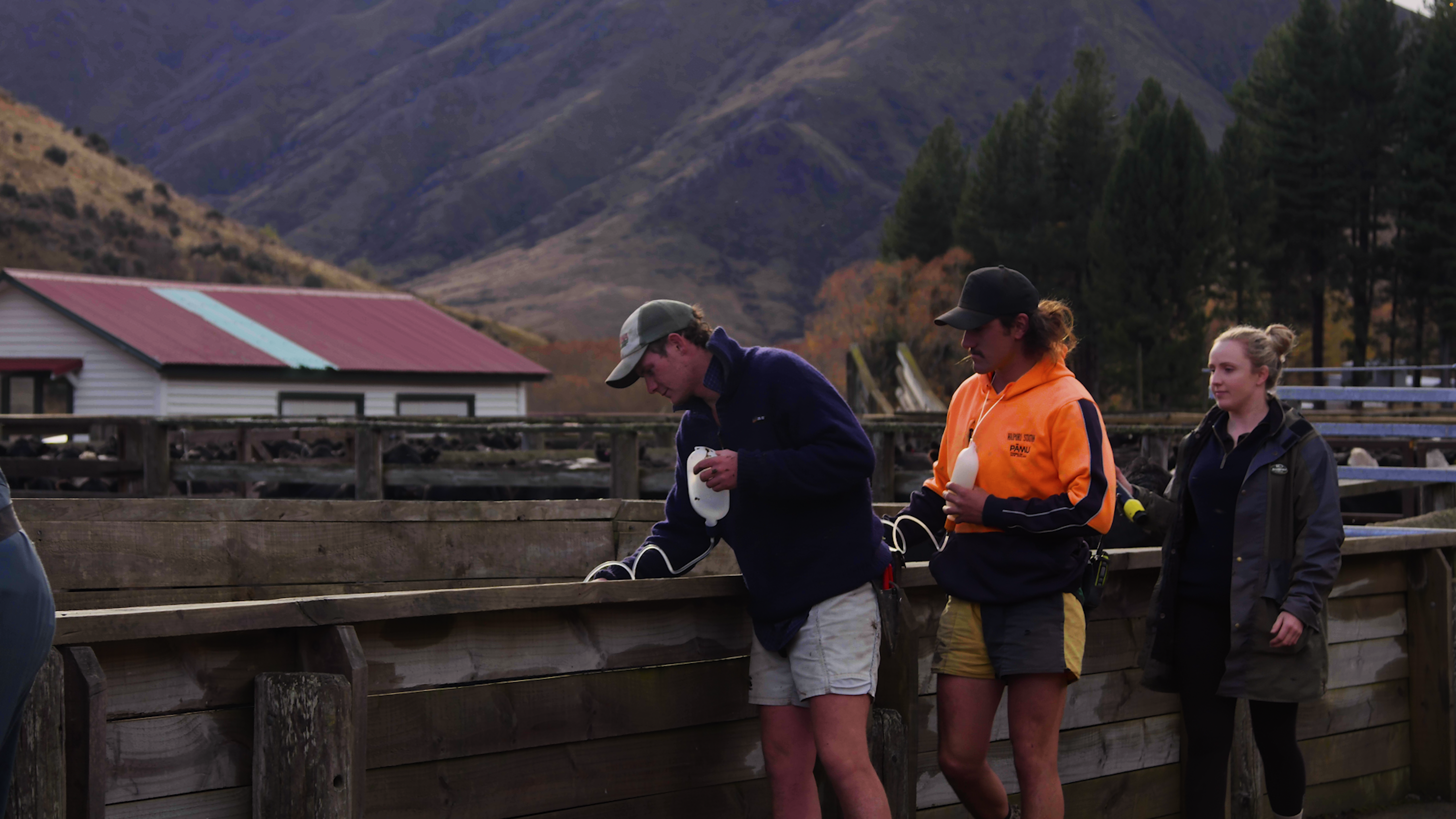Progress with Molesworth Station TB response

Heather Alexander (rear) with some of the Molesworth team who together have achieved significant reductions on the number of TB-infected animals on the station. Photo: Supplied.
Molesworth Station is New Zealand’s largest working farm, a high-country cattle station, spanning 180,787 hectares located behind the Inland Kaikōura Mountain range in the South Island’s Marlborough District.
Molesworth is the focus of a nine-year programme of targeted herd TB and wildlife surveillance, farm and stock management, possum control, and research.
With over 30 years of continual infection, the Molesworth cattle herd is the longest-standing TB-infected herd in New Zealand.
“In 2002, Molesworth Station entered into a partnership with TBfree New Zealand to undertake local wild animal control on the station. Together we have achieved significant reductions in the number of TB-infected animals within the herd,” says Heather Alexander, OSPRI regional partner for the Upper South Island.
Heather also says that they have taken a multi-pronged approach in their significant effort to eradicate TB in the cattle herd and possum population at Molesworth Station.
“We are doing things like herd TB testing of all age groups annually, TB surveillance at slaughter, farm and stock management practices to monitor TB risk, and pest management for both control and surveillance.”
To eradicate TB from possums the Molesworth team needs to rapidly reduce possum numbers and keep them low for several years so that the disease doesn’t have a chance to spread again.
For pest control the station is divided into blocks and due to the mountainous nature of the environment, aerial baiting methods ensure full coverage in a time-efficient and effective way. Reducing deer deaths during pest control is at the top of the list for all involved and Heather explains that they have been successful in using deer repellent.
“We first trialled a new deer repellent in 2021 and determined it successful in reducing unintended deer by-kill. Where consent conditions allow, we consider the use of deer repellent on cereal bait for all operations in the Upper South Island,” Heather says.
It’s the combination of methods and continued hard work that has made progress. The team has a goal for the cattle to be TB-free by June 2024 and possums to be TB-free by June 2027.
